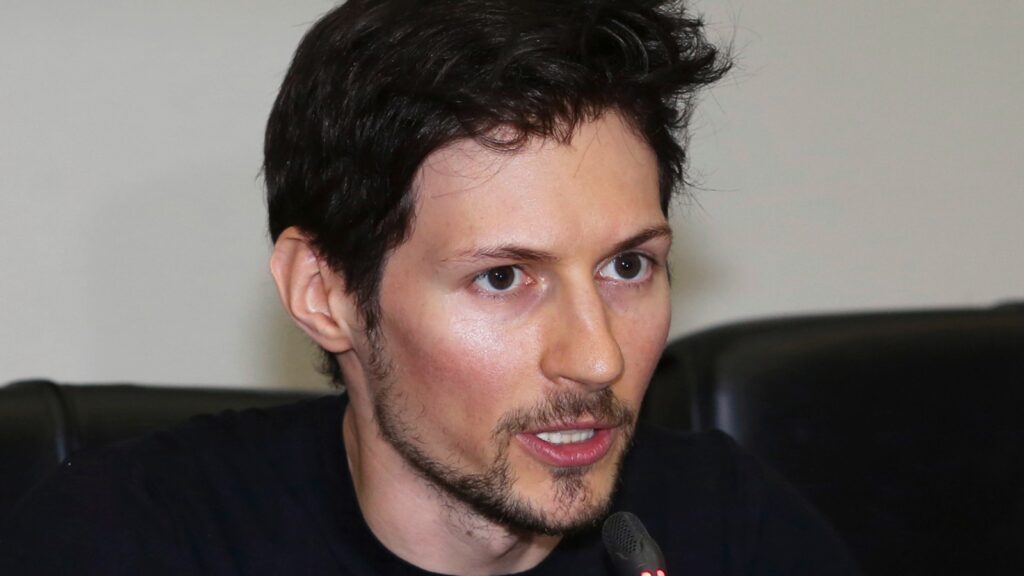Telegram CEO Pavel Durov Charged in France, Posts €5 Million Bail
Pavel Durov, the 39-year-old billionaire co-founder and CEO of the messaging app Telegram, appeared before an investigating judge in a Paris court Wednesday evening after being detained and questioned by French law enforcement since his arrest last weekend. That magistrate issued six preliminary criminal charges against Durov for allegedly allowing criminal activity on the app, and the tech executive — who posted bail of €5 million to avoid jail — is not permitted to leave France. He will also remain under judicial supervision and be required to check in with police twice weekly.
The charges listed in the indictment include complicity by making available a platform to enable the distribution of child sexual abuse material (CSAM), drug trafficking, fraud, and illegal transactions — and refusal to cooperate with law enforcement agencies requesting data and documents as part of criminal investigations. If convicted, he could face up to 10 years in prison, according to Paris prosecutor Laure Beccuau.
The move to hold Durov accountable for cybercrime on Telegram comes as the European Union explores possible enforcements of its Digital Services Act, which went into effect last year and gives it broader powers to regulate big tech platforms while setting new standards for privacy and moderation of harmful content including misinformation and hate speech. In a statement on Sunday, Telegram declared that the company abides by the DSA, that Durov “has nothing to hide,” and that it “is absurd to claim that a platform or its owner are responsible for abuse of that platform.”
Authorities were able to extend Durov’s detention for four days beyond the first 25 hours following his arrest, which took place at Le Bourget airport just outside Paris on Saturday night. (Durov was arriving from Azerbaijan via private jet.) After that period, they were compelled to release him or bring charges — the latter at the discretion of the magistrate.
The Russian-born Durov, most recently living in Dubai as a citizen of both France and the United Arab Emirates, is ensnared in what prosecutors describe as a broader investigation into alleged criminal activity on Telegram, which he created with his brother Nikolai Durov. This undercover operation began months ago, with arrest warrants issued for the brothers in March, according to a French administrative document viewed by Politico. The police have been looking into the distribution of child sexual abuse material (CSAM), drug trafficking, and organized fraud on the app, which is favored for clandestine communications because of its end-to-end encryption. French prosecutors also indicated that Telegram had been uncooperative in assisting their probe and moderating harmful content.
Telegram has a complex reputation. On one hand, it has proved instrumental for pro-democracy movements in authoritarian countries like the Durovs’ native Russia (Pavel left in 2014 amid pressure to turn over data from anti-Putin commentators on his social media network VK, and sold his stake in that company; Nikolai and Pavel have each held citizenship in the Caribbean nation of Saint Kitts and Nevis since then). On the other hand, the app has also been a hotbed for extremist hate groups, illegal trade in narcotics and firearms, child exploitation, conspiracy theorists, and terrorist organizations including the Islamic State.
As such, Telegram has been championed by the likes of Elon Musk and Tucker Carlson as a “free speech” platform even while governments seek to rein in criminal activity there. Apart from frustrating law enforcement agencies by failing to comply with subpoenas, the company has also ignored requests and warnings from child safety watchdogs alarmed by the proliferation of CSAM on the app. In 2017, the Wall Street Journal reported Wednesday, spies from France and the U.A.E. hacked Durov’s iPhone, evidently as part of joint counterterrorism efforts between the two nations.
In an ironic twist, Putin allies have condemned Durov’s arrest as an outrageous attack on his civil liberties. Kremlin spokesman Dmitry Peskov has said it may amount to a “direct attempt to restrict freedom of communication, and, I might even say, directly intimidate the head of a large company.” French President Emmanuel Macron has denied that the criminal investigation is politically motivated.





